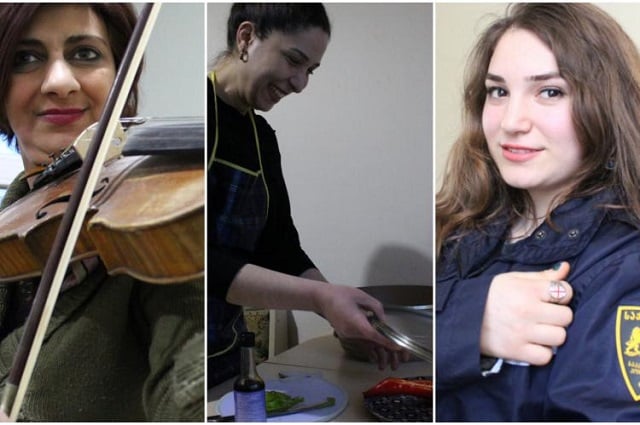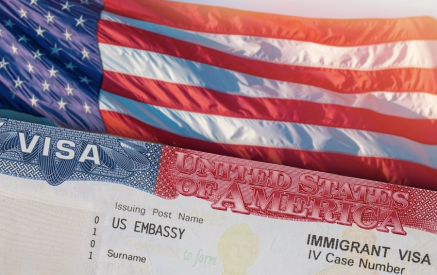EU NEIGHBOURS . “It is very important for people to be able to continue independent life after they leave the service, in order to avoid recurring abuse. Otherwise there is a vicious cycle, when the victim manages to escape the abusive environment temporarily, starts rehabilitation and returns back again due to limited time, as no other alternative is available.” These words can be found in the ombudsman’s special report[1] reflecting the problems revealed by the monitoring of public shelter services for victims of domestic violence in Georgia.
How many women return to their abusers and how many of them become victims of recurrent abuse? The state does not have any such statistics. However, the women themselves – the ex-victims of abuse who participated in this study and who had used the public shelter services – indicate that due to hard social and economic conditions they have to return to the conflictual situation, as they simply have no choice after the expiration of the shelter term. There is the similar situation when due to the same reason they refuse to escape the abusive environment and stay at home with the offender.
For this reason, Natia had been living alongside her abuser for years. She had left home several times, but would always return after a period away. Natia is 33 and has three children after 13 years of marriage. She says that she experienced different types of violence from her ex-husband. Nine months ago, she tried to leave him for the last time and enrolled in the “Programme for Social Reintegration for Women-Victims of Domestic Violence”, implemented by the “Innovations and Reforms Centre” and supported by the EU. Enrolling in the programme enabled Natia to use a temporary shelter, receive psychological services for herself and her children, and simultaneously develop skills that would help her to continue living an independent life.
“After coming to the shelter I was asked about my interests and likes, and also what I would like to do in the future. I said my dream was to become a culinary specialist. The programme had financed my three-month culinary course which I attended in one of the best academies. I learned everything quickly. After completing the course, I also had on-the-job training; then, they helped me to find my first job and I started to work. I have registered as an individual entrepreneur and today I run my own business. I moved to a separate flat with my children and work at home. I prepare meals and supply an organisation on a contractual basis. I am still receiving the aid from the social integration programme. They pay my monthly accommodation fee, but I hope I’ll soon be able to live without this support.”
Read also
This is Natia’s story, which tells us how she has escaped her abuser and managed to be empowered by the “Innovations and Reforms Centre.” However, Natia is not the only person preparing for an independent life.
In a family-style shelter situated in the Kvemo Kartli region live around 10 female ex-victims with their children. Nato Gagnidze, the programme manager, says that all roles are defined at the shelter, which is important for ensuring the provision of all relevant services. To ensure this, the project involves supporting female victims of domestic violence, equipping them with the necessary knowledge and skills to enable them to escape their abusive environment, live a dignified life and guarantee their own future and the future of their dependents – their children.
The project for the support and empowerment of women ex-victims of domestic violence has several stages. In the first stage, the project’s multifunctional team tries to study the women’s histories and interests, identify their skills and make it possible to use them in practice. The second stage is focused on development and provision of relevant educational services and involves support with employment. The preparation of the women for the third stage – independent living – then commences.
Another woman to have enrolled in the Programme for Social Reintegration for Women-Victims of Domestic Violence” is 18-year-old Chinara, who recently turned 18 while at the shelter. She became a victim of domestic violence because of her father, who forced her to marry. As she tells us, she did not want to marry and was asking for help from anybody who would listen to her: “I was 15 when I got engaged, and I told my teacher that I did not want to marry. I wanted to study and then marry the person I’d fallen in love with. When the police learned about this, my father was asked to write a letter [to state] that he would not force me to marry. When I was 17, they set the wedding date, and I asked for help from a journalist working in our district. After this, I received a call from the ombudsman’s office and was told not to be afraid. They helped me to leave home a few days before the wedding.”
Nato Gagnidze, the project manager in charge of Chinara’s case, mentions that huge efforts by the shelter team and active work with Chinara made it possible to persuade her to stay sheltered: “She was very anxious about the parents. In spite of the fear of going back, she wanted to see them and return home. Today, Chinara is at the shelter, in the first stage of the social rehabilitation programme – working with her has enabled us to identify her fields of interest and she now studies Georgian, attends makeup courses and does boxing.”
“When I came to the shelter, I could hardly speak in Georgian,” says Chinara. “Today, I can speak, read and write well. I also attend English classes. I have graduated from the 9th grade of school, but I am eager to continue studying. My dream is to become a police officer or a lawyer. I would like to help girls like myself. I receive all the support I need at the shelter. I am preparing to continue studying, I go boxing, I have even won a certificate. I love doing makeup and have attended makeup courses. And now, when I’m ready, the shelter’s staff will help me to continue my studies at college. I don’t want to think what would have happened if I had not come to the shelter. I am very lucky,” she says.
Iana is a victim of violence. She is 43 and came to the shelter with a severe history of violence. She had been experiencing various forms of violence from her husband for 11 years. She lives at the shelter together with her three small children and the shelter’s multifunctional team is working with them. Hard social and economic conditions were the reason that Iana stayed with her abuser: “I had nowhere to go. I called the police several times to defend myself, but when they came, I thought and understood that I would not know where to go and what to do if I left. So I stayed at home,” she explains.
She enrolled in the social reintegration programme six months ago and is currently in the first stage. Iana is a musician; she has been playing the violin since she was two, before she could even speak. She graduated from the conservatoire and played in the symphonic orchestra before getting married. As her ex-husband did not allow her to play, she left the orchestra and has not worked since then: “He couldn’t bear it when I played. Once, he took my violin, threw it away and it broke. It was badly damaged and it was impossible to play. After coming to the shelter, when they asked how to help me, the first thing I asked for was to repair my violin, and the project satisfied my request. Music is my life. I don’t know what else I can do, I cannot imagine myself in another field,” says Iana.
According to her interests, the project team started to take care of Iana’s professional skills and to recover and improve them with the help of a teacher. Negotiations with restaurant and bar owners are ongoing and once an agreement has been reached, Iana hopes she can play on the local scene. In the future, she plans to teach others, which will be an additional source of income.
Female victims of domestic violence who are enrolled in the social reintegration programme aim to be empowered, study and develop their professional skills in the framework of the project, and are preparing for an independent life without those who abused them.
Author: Tamar Kuratishvili
Article published in Georgian by NewPress.ge
[1] “Abuse Against Women and Domestic Violence in Georgia” (2015)

























































